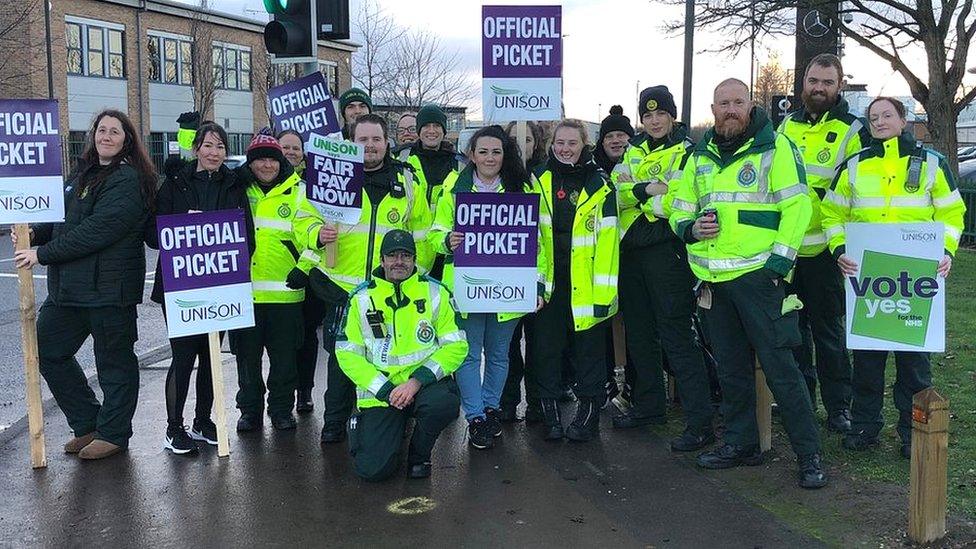Somerset woman says ambulance delays led to her husband's death
- Published
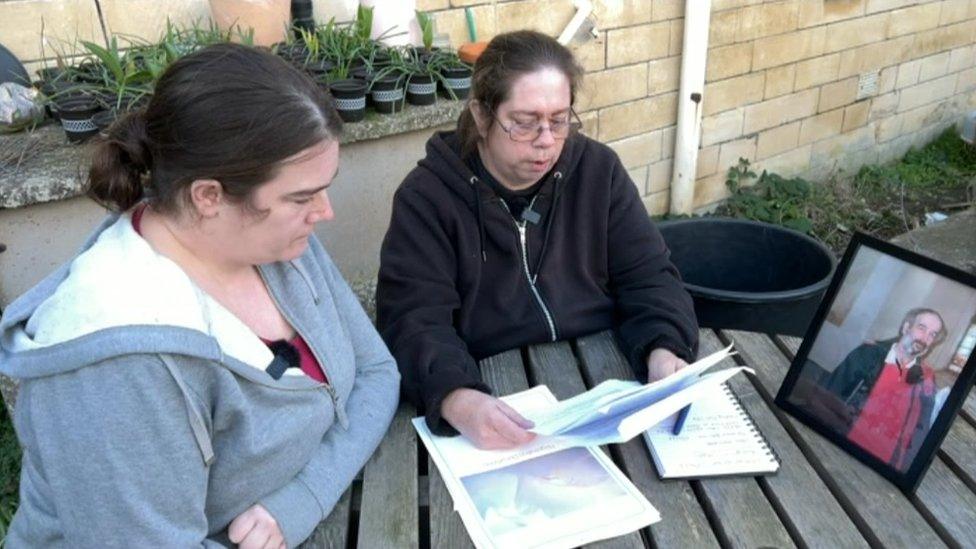
"It's left an immense hole in our life", said Ms Mogg
A woman whose husband died from cardiac arrest, while waiting almost two hours for an ambulance, says ambulance delays led to his death.
Last July, Garry Mogg, waited for an ambulance for 1 hour and 43 minutes at his home in Oldfield Park in Bath.
Emma Mogg said if the ambulance had arrived faster, her husband would still be alive.
It comes as new figures show how bad delays with the region's ambulance service got to their peak in December.
South Western Ambulance NHS Foundation Trust (SWASFT) have apologised to the Mogg family and offered their sincere condolences.
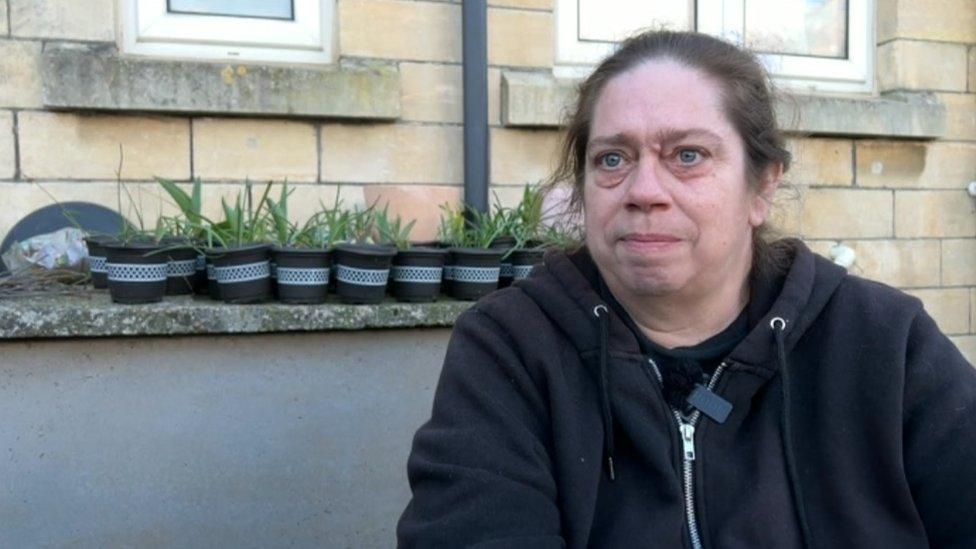
Emma Mogg called an ambulance an ambulance twice for her husband Garry
"We strongly feel that if an ambulance had arrived within half an hour and they got Garry up to an A&E, we think he would still be here," said Ms Mogg.
"I just think it was just far too long to wait, especially when you're ringing and saying, he's got chest pains."
The Liberal Democrats submitted a Freedom of Information request. which revealed some of the longest ambulance delays in the South West.
The evidence revealed that the longest wait for an ambulance was 80 hours.
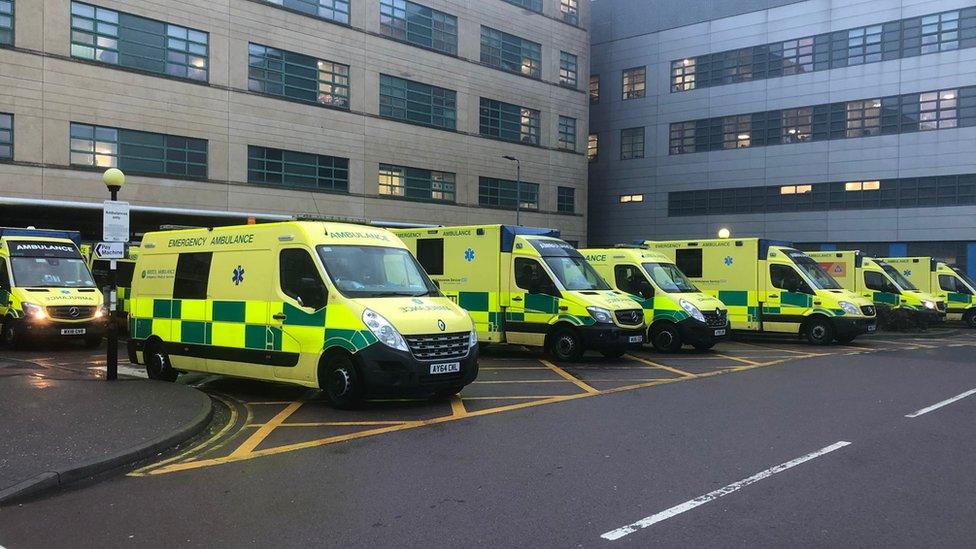
SWASFT said: "We are working with partners in the NHS and social care, to do all we can to improve the service that patients receive."
During a Category 1 emergency, where there is the need for an immediate response to a life-threatening condition, a patient waited three hours.
For a Category 2 emergency - a category used to class heart-attack and stroke victims - someone waited a day and a half.
Ambulance strikes due to take place on Monday 6 and Tuesday 7 March have been called off, as the Unite union is expected to hold talks with the government this week.
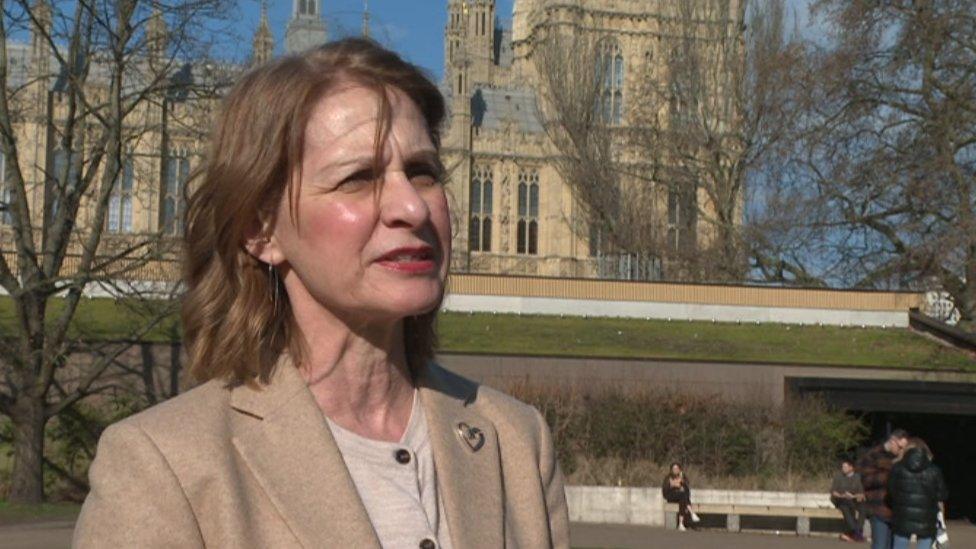
Vera Hobhouse, MP for Bath, says she does not blame the paramedics
Wera Hobhouse, Lib Dem MP for Bath, said that paramedics were doing their utmost to save lives.
"It's them who have raised the alarm bells and the Royal College for Emergency medicine have been raising the alarm bells," she said.
Will Warrender, Chief Executive of SWASFT said the situation has improved.
"In December, we lost about a third of our ambulances across the month, because they were sat outside hospital waiting to offload patients," said Mr Warrender.
"It's a problem clearly for the patients and the ambulances, it's a problem for patients in the community that we can't get to and it's a problem for my own team who are sat there desperately trying to do the job that they joined the ambulance service to do."
A spokesperson for the South Western Ambulance Service NHS Foundation Trust (SWASFT) said: "Our ambulance clinicians strive every day to give their best to patients, but our performance has not returned to pre-pandemic levels, partly due to handover delays at emergency departments."

Follow BBC West on Facebook, external, Twitter, external and Instagram, external. Send your story ideas to: bristol@bbc.co.uk , external
Related topics
- Published5 March 2023
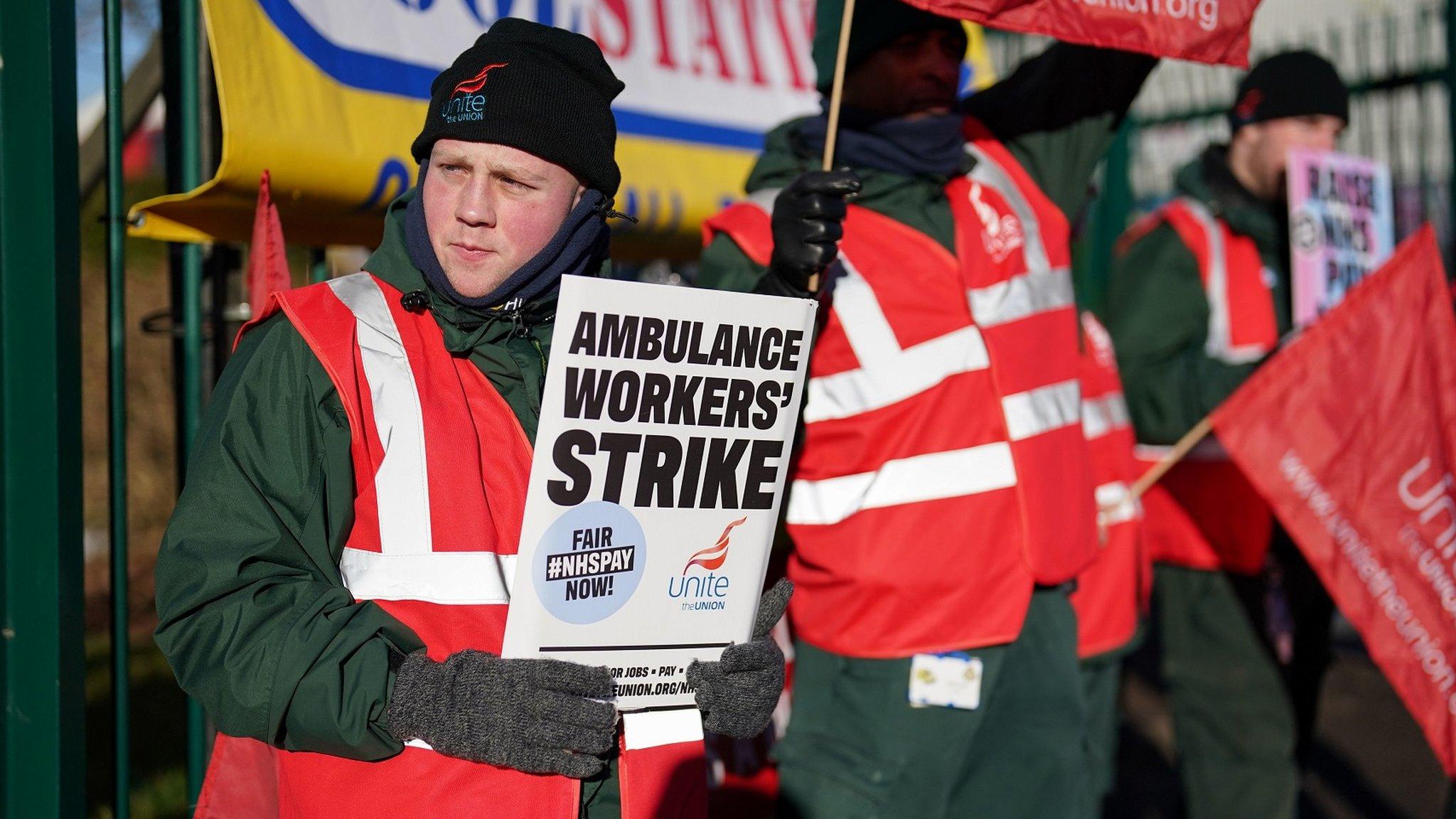
- Published30 December 2022
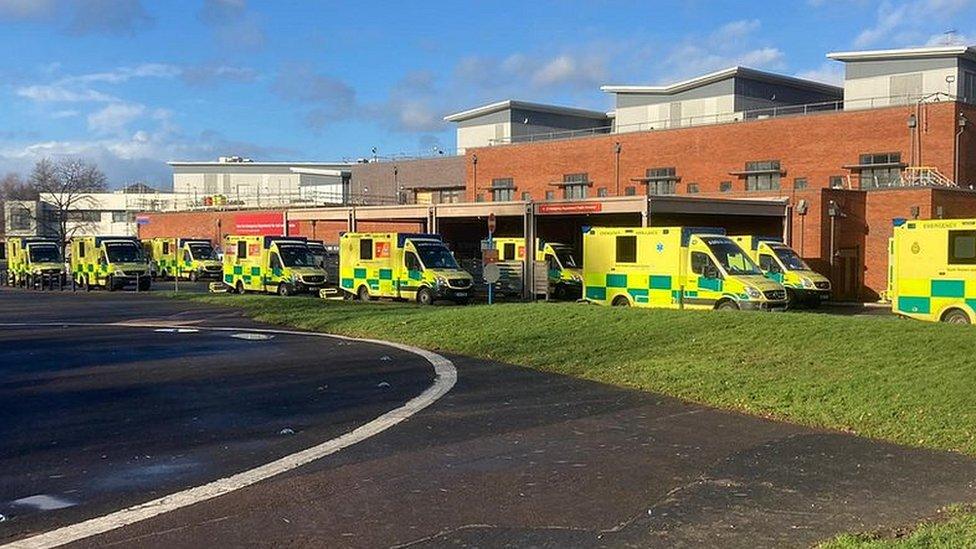
- Published21 December 2022
